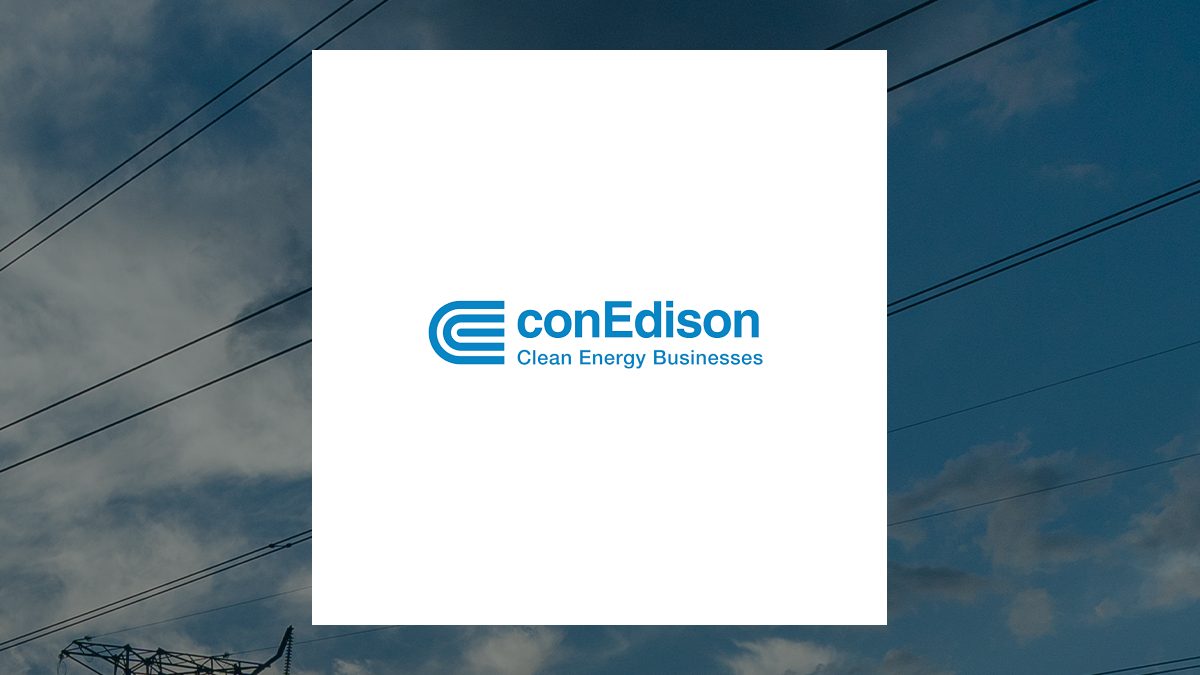Consolidated Edison (NYSE:ED – Get Free Report) and Edison International (NYSE:EIX – Get Free Report) are both large-cap utilities companies, but which is the better stock? We will contrast the two businesses based on the strength of their profitability, earnings, dividends, analyst recommendations, institutional ownership, risk and valuation.
Insider and Institutional Ownership
66.3% of Consolidated Edison shares are owned by institutional investors. Comparatively, 88.9% of Edison International shares are owned by institutional investors. 0.2% of Consolidated Edison shares are owned by insiders. Comparatively, 1.2% of Edison International shares are owned by insiders. Strong institutional ownership is an indication that endowments, hedge funds and large money managers believe a company is poised for long-term growth.
Analyst Recommendations
This is a breakdown of current ratings and price targets for Consolidated Edison and Edison International, as provided by MarketBeat.com.
| Sell Ratings | Hold Ratings | Buy Ratings | Strong Buy Ratings | Rating Score | |
| Consolidated Edison | 4 | 5 | 3 | 0 | 1.92 |
| Edison International | 1 | 8 | 6 | 1 | 2.44 |
Risk & Volatility
Consolidated Edison has a beta of 0.32, suggesting that its stock price is 68% less volatile than the S&P 500. Comparatively, Edison International has a beta of 0.85, suggesting that its stock price is 15% less volatile than the S&P 500.
Earnings and Valuation
This table compares Consolidated Edison and Edison International”s gross revenue, earnings per share and valuation.
| Gross Revenue | Price/Sales Ratio | Net Income | Earnings Per Share | Price/Earnings Ratio | |
| Consolidated Edison | $16.15 billion | 2.20 | $1.82 billion | $5.51 | 17.86 |
| Edison International | $18.09 billion | 1.21 | $1.55 billion | $7.65 | 7.45 |
Consolidated Edison has higher earnings, but lower revenue than Edison International. Edison International is trading at a lower price-to-earnings ratio than Consolidated Edison, indicating that it is currently the more affordable of the two stocks.
Profitability
This table compares Consolidated Edison and Edison International’s net margins, return on equity and return on assets.
| Net Margins | Return on Equity | Return on Assets | |
| Consolidated Edison | 11.98% | 8.56% | 2.78% |
| Edison International | 17.24% | 13.62% | 2.63% |
Dividends
Consolidated Edison pays an annual dividend of $3.40 per share and has a dividend yield of 3.5%. Edison International pays an annual dividend of $3.31 per share and has a dividend yield of 5.8%. Consolidated Edison pays out 61.7% of its earnings in the form of a dividend. Edison International pays out 43.3% of its earnings in the form of a dividend. Both companies have healthy payout ratios and should be able to cover their dividend payments with earnings for the next several years. Consolidated Edison has raised its dividend for 52 consecutive years and Edison International has raised its dividend for 23 consecutive years. Edison International is clearly the better dividend stock, given its higher yield and lower payout ratio.
Summary
Edison International beats Consolidated Edison on 13 of the 18 factors compared between the two stocks.
About Consolidated Edison
 Consolidated Edison, Inc., through its subsidiaries, engages in the regulated electric, gas, and steam delivery businesses in the United States. It offers electric services to approximately 3.7 million customers in New York City and Westchester County; gas to approximately 1.1 million customers in Manhattan, the Bronx, parts of Queens, and Westchester County; and steam to approximately 1,530 customers in parts of Manhattan. The company also supplies electricity to approximately 0.3 million customers in southeastern New York and northern New Jersey; and gas to approximately 0.2 million customers in southeastern New York. In addition, it operates 545 circuit miles of transmission lines; 15 transmission substations; 63 distribution substations; 90,051 in-service line transformers; 3,788 pole miles of overhead distribution lines; and 2,314 miles of underground distribution lines, as well as 4,363 miles of mains and 380,870 service lines for natural gas distribution. Further, the company invests in electric and gas transmission projects. It primarily sells electricity to industrial, commercial, residential, and government customers. Consolidated Edison, Inc. was founded in 1823 and is based in New York, New York.
Consolidated Edison, Inc., through its subsidiaries, engages in the regulated electric, gas, and steam delivery businesses in the United States. It offers electric services to approximately 3.7 million customers in New York City and Westchester County; gas to approximately 1.1 million customers in Manhattan, the Bronx, parts of Queens, and Westchester County; and steam to approximately 1,530 customers in parts of Manhattan. The company also supplies electricity to approximately 0.3 million customers in southeastern New York and northern New Jersey; and gas to approximately 0.2 million customers in southeastern New York. In addition, it operates 545 circuit miles of transmission lines; 15 transmission substations; 63 distribution substations; 90,051 in-service line transformers; 3,788 pole miles of overhead distribution lines; and 2,314 miles of underground distribution lines, as well as 4,363 miles of mains and 380,870 service lines for natural gas distribution. Further, the company invests in electric and gas transmission projects. It primarily sells electricity to industrial, commercial, residential, and government customers. Consolidated Edison, Inc. was founded in 1823 and is based in New York, New York.
About Edison International
 Edison International, through its subsidiaries, engages in the generation and distribution of electric power. The company supplies and delivers electricity to approximately 50,000 square mile area of southern California to residential, commercial, industrial, public authorities, agricultural, and other sectors. Its transmission facilities consist of lines ranging from 55 kV to 500 kV and approximately 80 transmission substations; distribution system consists of approximately 38,000 circuit-miles of overhead lines; approximately 31,000 circuit-miles of underground lines; and 730 distribution substations. The company was founded in 1886 and is based in Rosemead, California.
Edison International, through its subsidiaries, engages in the generation and distribution of electric power. The company supplies and delivers electricity to approximately 50,000 square mile area of southern California to residential, commercial, industrial, public authorities, agricultural, and other sectors. Its transmission facilities consist of lines ranging from 55 kV to 500 kV and approximately 80 transmission substations; distribution system consists of approximately 38,000 circuit-miles of overhead lines; approximately 31,000 circuit-miles of underground lines; and 730 distribution substations. The company was founded in 1886 and is based in Rosemead, California.
Receive News & Ratings for Consolidated Edison Daily - Enter your email address below to receive a concise daily summary of the latest news and analysts' ratings for Consolidated Edison and related companies with MarketBeat.com's FREE daily email newsletter.
